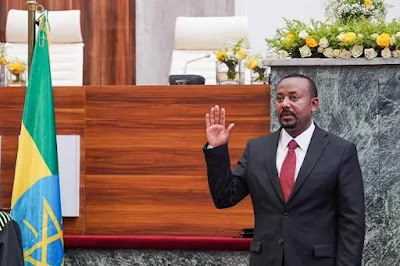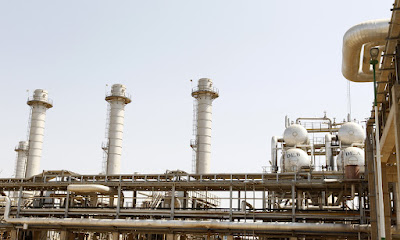China, Africa Further Cement Ties
Xi announces additional 1 bln vaccine doses to continent; vows joint green development
By Yang Sheng, Liu Xin, Wang Wenwen and Cui Fandi
Nov 30, 2021 12:43 AM
Chinese President Xi Jinping (center) delivers a keynote speech via video link at the opening ceremony of the 8th Ministerial Conference of the Forum on China-Africa Cooperation on Monday. Photo: Xinhua
Chinese President Xi Jinping said China will provide Africa with another 1 billion doses of COVID-19 vaccine, and he said China and African countries should insist on unity in fighting the COVID-19 pandemic, deepen pragmatic cooperation, promote green development and safeguard fairness and justice.
Xi made the remarks at the opening of the 8th Ministerial Conference of the Forum on China-Africa Cooperation (FOCAC) via video link on Monday. Experts said China-Africa relations have been improving steadily while the US increasingly eyes the continent as a geopolitical battlefield with no substantial input, but only lip service promises.
This year's ministerial conference of the FOCAC is expected to yield the most results on China-Africa cooperation with short-term plans focused on economic recovery and cooperation in the fight against the COVID-19, and long-term plans on digital and green economy and climate change cooperation, analysts said.
China-Africa cooperation will have more global significance in the future in post-pandemic recovery and addressing climate change, and the unprecedented achievements of the 8th ministerial conference of the FOCAC will comprehensively improve China-Africa ties and reinforce the existing shared values and mutual trust, they noted.
To overcome challenges
A key document titled "2035 vision for China-Africa cooperation" has been formulated before the conference, and for the first three-year planning under the vision, China will work with African countries on nine projects - health, poverty alleviation and benefitting farmers, trade promotion, investment drive, digital innovation, green development, capacity building, people-to-people exchanges, and peace and security, Xi said.
"This FOCAC conference comes at a critical time," said Adhere Cavince, a Kenyan scholar on international relations with a focus on China-Africa relations, noting that the conference is taking place amid a global health and climate crisis.
"Africa is the least vaccinated region against COVID-19 and global warming is fueling climate famine in Madagascar.
Joint action against the pandemic and green economic reconstruction should strongly feature in the discussions," he told the Global Times.
The next three years will be very important for China-Africa cooperation. As the only country that has successfully put the pandemic under control, China has significant capacity to assist African countries overcome economic damage, Cavince noted.
For example, Chinese companies remain active in much of Africa, implementing development projects like the Nairobi Expressway and Lamu Port in Kenya, which has provided the much-needed jobs as well as capital into the Kenyan economy through local subcontractors, he said.
China and Africa are also expected to work out an outlook on how to better connect China's second centennial goal with Africa's development, as many African countries, including Kenya and Ethiopia, have their own 10-year plans.
Such an outlook between China and Africa would lay a solid foundation for cooperation in at least the next 10 years, Zhu Weidong, senior research fellow with the Institute of West Asian and African Studies at the Chinese Academy of Social Sciences, told the Global Times.
Actions vs lip service
China has always considered Africa the platform for international cooperation and opposed turning it into an arena for major power competition. But the US and some Western countries clearly want to compete with China and Russia in Africa, experts said.
Zhu noted that unlike his predecessor, US President Joe Biden has attached more importance to Africa. "Promoting US-style democracy, human rights and values are the tools he is wielding to attract African countries" to compete with China's influence in the continent.
The US is scheduled to hold a summit for democracy from December 9-10 for "leaders from government, civil society and the private sector," and some key themes include "defending against authoritarianism" and "promoting respect for human rights," according to a statement released on the website of the US State Department. Many African countries are on the participant list.
Aside from turmoil, conflicts, lip service and empty promises, the US has brought nothing to African countries, and those African countries know this very well, Zhu said, noting that on the contrary, China has taken concrete actions to help African countries to deal with problems in sectors crucial to their development, including infrastructure building.
China has built more than 80 electricity infrastructure projects in Africa, more than 130 medical facilities, 45 stadiums, and more than 170 schools, and helped train more than 160,000 people in Africa. China-Africa cooperation has become a banner for South-South cooperation and international cooperation with Africa, Wu Jianghao, Assistant Minister of Foreign Affairs, told a press conference on Friday.
A recent report by African pollster Afrobarometer shows that China ranks first in terms of external influence in Africa, with 63 percent of Africans saying the economic and political influence of China in their country is "somewhat positive" or "very positive," and 66 percent perceive China's economic and political influence in Africa as positive.
Cooperation or competition?
From November 15-20, US Secretary of State Antony Blinken visited Kenya, Nigeria and Senegal - the highest-ranking official from the Biden administration to visit sub-Saharan Africa - in a trip that was interpreted by global media as a move to compete with China for influence in Africa.
Blinken said that the US plans to invest in several projects across Africa through its Build Back Better World initiative (B3W), which aims to invest $40 trillion in developing nations.
However, it requires a long and tedious process to allocate budgets and start programs, and the presidential election in the US may cause changes to the plans, Song Wei, Deputy Director of the World Economy Research Institute at the Chinese Academy of International Trade and Economic Cooperation who focuses on the study of Africa, told the Global Times.
The US' plans on Africa are "external competition driven," which means instead of caring for Africa's development, it focuses on competing with China's influence in the region, Song said, noting that the US' "infrastructure" programs in Africa are also different from China's broader infrastructure construction.
Every China-backed infrastructure program in Africa respects local system and is suited to local development plan. The US' programs are more about promoting its values through small projects, aiming to remold one country through its assistance, Song said.
Unshakable friendship
Xi said that in 65 years of diplomatic relations, China and African countries have set a shining example for building a new type of international relations, and China will never forget the long and profound friendship with African countries.
China and Africa have supported each other's core interests. Zhu noted that China and Africa share cultural similarities and in fighting for independence. As developing countries, China and African countries also share same stance on fighting for living and development rights, and oppose hegemony and arrogant lecturing and interference from the West.
US political elites have never truly respected African countries and their racial mindset is ingrained. For instance, former US president Donald Trump rudely said African nations are "shithole countries," so it's almost impossible for the US to build ties with Africa as friendly as China-Africa ties, analysts said.
In facing the US and Western countries' hype of human rights topics on China's Xinjiang and Hong Kong regions, African countries stood out to firmly support China and opposed external interference in China's domestic affairs.
As one of the permanent members of the UN Security Council, China has also firmly supported African countries in boosting their voices in an international platform, and encouraged their active engagement in international affairs, Zhu noted.
China and Africa have been good friends and will always be each other's good friends no matter what the US and the West try to do, Zhu said.


















